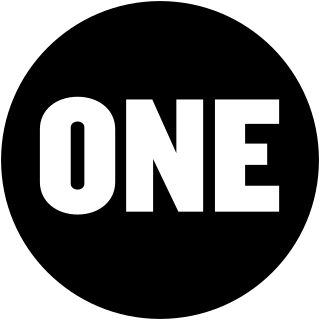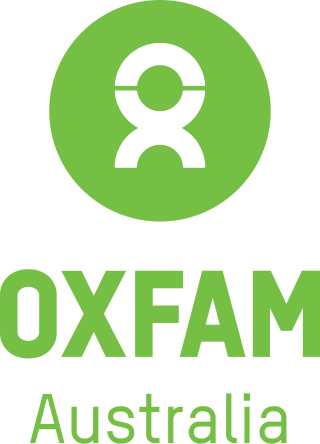
The Great Society was a set of domestic programs in the United States launched by President Lyndon B. Johnson in 1964 and 1965. The term was first referenced during a 1964 speech by Johnson at Ohio University, then later formally presented at the University of Michigan, and came to represent his domestic agenda. The main goal was the total elimination of poverty and racial injustice.
The term New Frontier was used by Democratic presidential candidate John F. Kennedy in his acceptance speech in the 1960 United States presidential election to the Democratic National Convention at the Los Angeles Memorial Coliseum as the Democratic slogan to inspire America to support him. The phrase developed into a label for his administration's domestic and foreign programs.

The Millennium Development Goals (MDGs) were eight international development goals for the year 2015 that had been established following the Millennium Summit of the United Nations in 2000, following the adoption of the United Nations Millennium Declaration. These were based on the OECD DAC International Development Goals agreed by Development Ministers in the "Shaping the 21st Century Strategy". The Sustainable Development Goals (SDGs) succeeded the MDGs in 2016.

The International Union for the Protection of New Varieties of Plants or UPOV is a treaty body with headquarters in Geneva, Switzerland. Its objective is to provide an effective system for plant variety protection. It does so by defining a blueprint regulation to be implemented by its members in national law. The expression UPOV Convention also refers to one of the three instruments that relate to the union, namely the 1991 Act of the UPOV Convention, 1978 Act of the UPOV Convention and 1961 Act of the UPOV Convention with Amendments of 1972.
ActionAid is an international non-governmental organization whose stated primary aim is to work against poverty and injustice worldwide.

ONE Campaign is an international, non-partisan, non-profit advocacy and campaigning organization that fights extreme poverty and preventable disease, particularly in Africa, by raising public awareness and pressuring political leaders to support policies and programs that save lives and improve futures.

World Food Day is an international day celebrated every year worldwide on October 16 to commemorate the date of the founding of the United Nations Food and Agriculture Organization in 1945. The day is celebrated widely by many other organizations concerned with hunger and food security, including the World Food Programme, the World Health Organization and the International Fund for Agricultural Development. WFP received the Nobel Prize in Peace for 2020 for their efforts to combat hunger, contribute to peace in conflict areas, and for playing a leading role in stopping the use of hunger in the form of a weapon for war and conflict.

Poverty reduction, poverty relief, or poverty alleviation is a set of measures, both economic and humanitarian, that are intended to permanently lift people out of poverty.

Oxfam Australia is an Australian, independent, charity, not-for-profit, secular, community-based aid and development organization, and is an affiliate of the Oxfam International Confederation. Oxfam Australia's work is divided into four broad categories covering climate justice, Economic Justice, Gender Justice and First Peoples Justice as well as Humanitarian response. They believe that poverty in the 21st century is less a problem of scarcity but the result of how resources, opportunities, and protections are distributed and wielded.

The Global Call to Action Against Poverty (GCAP) is a network of over 11,000 civil society organisations (CSOs) organized in about 58 National Coalitions and in constituency groups of women, youth and socially-excluded people, among others. It supports people in their struggles for justice and brings individuals and organisations together to challenge the institutions and processes that perpetuate poverty and inequalities.
The Australian Council For International Development (ACFID) is an independent national association of Australian non-government organisations (NGOs) working in the field of international aid and development. ACFID was founded in 1965, with Syd Einfeld as Chairman, and has over 130 members working in 90 developing countries and supported by over 1.5 million Australians. It lobbies for non-government aid organisations, and Australian government development aid.
The Leadership Conference on Civil and Human Rights, formerly called the Leadership Conference on Civil Rights, is an umbrella group of American civil rights interest groups.
United Purpose, formerly known as Concern Universal, is an international development and emergency relief organization that works in a number of the poorest countries of the world to assist in finding local, sustainable solutions to poverty and inequality. Concern Universal was created by Father Raymond Kennedy and a group of volunteers who had been working in developing countries during the late 1960s and early 1970s. The organization was officially established in January 1976 and, as of 2018, has approximately 600 employees. Influences on the founding members included the first-hand experiences of the suffering they saw and social movements that encouraged engagement in the struggles of the poor. United Purpose aims to work in conjunction with struggling nations to challenge local poverty and inequality. Their vision is a world where "justice, dignity, and respect prevail for all". The organization aims to end poverty and inequality by "enabling people to improve their lives for the long term by providing them with access to resources they need". They also work to "challenge the dependency culture" and provide practical local application of Sustainable Development Goals. The organization headquarters are currently located in the United Kingdom.

A civil society campaign is one that is intended to mobilize public support and use democratic tools such as lobbying in order to instigate social change. Civil society campaigns can seek local, national or international objectives. They can be run by dedicated single-issue groups such as Baby Milk Action, or by professional non-governmental organisations (NGOs), such as the World Development Movement, who may have several campaigns running at any one time. Larger coalition campaigns such as 2005's Make Poverty History may involve a combination of NGOs.

Self Help Africa is an international charity that promotes and implements long-term rural development projects in Africa. Self Help Africa merged with Gorta in July 2014, and in 2021 merged with UK-based INGO, United Purpose. The organisation also owns a number of social enterprise subsidiaries - Cumo Microfinance, TruTrade and Partner Africa.

American Jewish World Service (AJWS) is a 501(c)(3) nonprofit international development and human rights organization that supports community-based organizations in 19 countries in the developing world and works to educate the American Jewish community about global justice. It is the first and only Jewish organization dedicated solely to ending poverty and promoting human rights in the developing world. Its headquarters are in New York City. AJWS has received a Four Star rating from Charity Navigator since 2002.

Salil Shetty is an Indian human rights activist who was the Secretary General of the human rights organization Amnesty International (2010–2018) till 31 July 2018. Previously, he was the director of the United Nations Millennium Campaign. Before joining the UN, he served as the Chief Executive of ActionAid. Most recently, Shetty had a short stint as the Vice President of Global Programs at the Open Society Foundations.

Water supply and sanitation in Kenya is characterised by low levels of access to water and sanitation, in particular in urban slums and in rural areas, as well as poor service quality in the form of intermittent water supply. Seasonal and regional water scarcity in Kenya exacerbates the difficulty to improve water supply.
The Water Supply and Sanitation Collaborative Council (WSSCC) was a United Nations-hosted organization contributing to Sustainable Development Goal 6, Target 6.2 on sanitation and hygiene. It was established in 1990 and closed at the end of 2020. WSSCC advocated for improved sanitation and hygiene, with a focus on the needs of women, girls and people in vulnerable situations.
Access to medicines refers to the reasonable ability for people to get needed medicines required to achieve health. Such access is deemed to be part of the right to health as supported by international law since 1946.












